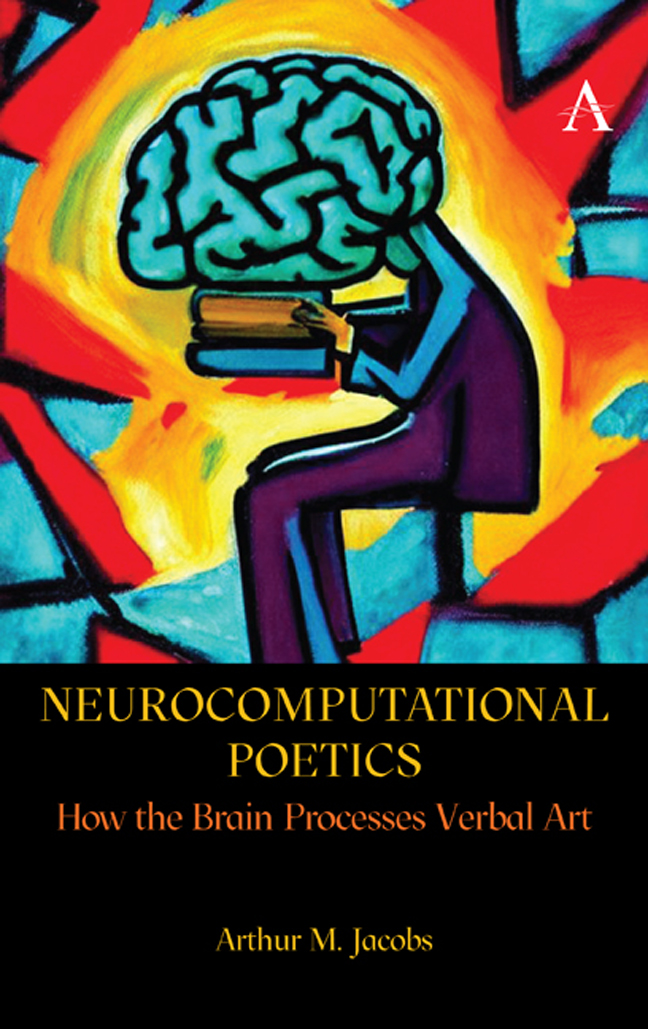Book contents
- Frontmatter
- Contents
- Acknowledgements
- Dedication
- Preface
- 1 Introduction: The Two Boons of an Unnatural Daily Activity
- 2 Models and Methods
- 3 Text Analysis
- 4 Reader and Reading Act Analysis
- 5 Computational Poetics I: Simple Applications
- 6 Computational Poetics II: Sophisticated Applications
- 7 Neurocomputational Poetics I: Upper Route Studies
- 8 Neurocomputational Poetics II: Lower Route Studies
- 9 Conclusions
- References
- Index
Preface
Published online by Cambridge University Press: 01 March 2024
- Frontmatter
- Contents
- Acknowledgements
- Dedication
- Preface
- 1 Introduction: The Two Boons of an Unnatural Daily Activity
- 2 Models and Methods
- 3 Text Analysis
- 4 Reader and Reading Act Analysis
- 5 Computational Poetics I: Simple Applications
- 6 Computational Poetics II: Sophisticated Applications
- 7 Neurocomputational Poetics I: Upper Route Studies
- 8 Neurocomputational Poetics II: Lower Route Studies
- 9 Conclusions
- References
- Index
Summary
The start of every act of reading a story, poem or book is a decision: the decision to go someplace else. This place can be a world we have not been to before and it can lead to forgotten memories or dreams, suppressed desires or emotions or to novel ideas that change one's life. There may be many hidden motivations or explicit reasons leading to this decision. The consequence is always the same: one abandons control of one's mind and lends it – for some time – to a writer. This is a risky business, for one is now loaned out to another who thinks, feels, suffers and acts within one. It is like a blend of two minds or consciousnesses. To a certain extent, reading removes the subject–object division that constitutes all perception. If the conditions are right, readers of verbal art will immerse into that other place, that other reality and forget the world around them. This immersive experience is one of two primary reasons why we buy and read stories and novels; the other being the aesthetic experience often reported when reading lyrics and poetry. A psychiatrist friend of mine once compared immersion with a psychopathological state. And indeed, reading can become an addiction. But even if engaged reading was a mild form of psychosomatic disease, the disease seems often better than the cure: being immune to the immersive and aesthetic effects of reading fiction, being indifferent to or unmoved by the actions or feelings of a protagonist would mean that one misses out on one of the greatest pleasures of the mind; but also, that one lacks empathy, which is fundamental for our social life. Indeed, moving your mind through the text worlds of fiction is good training for both cognitive and social-emotional skills. Both your IQ and EQ can only benefit – if you read the right stuff.
What makes literary reading such a captivating experience despite its rapidity is based on the fact that associative semantic networks are activated in the brain. These put in train thoughts and feelings as well as unconscious motion sequences. Semantic networks is a handy metaphor to describe how our brains organize information about the world in the form of a net of concept nodes linked by connections.
- Type
- Chapter
- Information
- Neurocomputational PoeticsHow the Brain Processes Verbal Art, pp. xi - xxPublisher: Anthem PressPrint publication year: 2023



